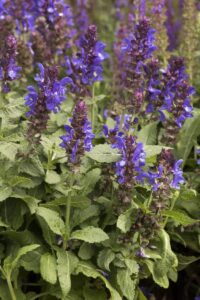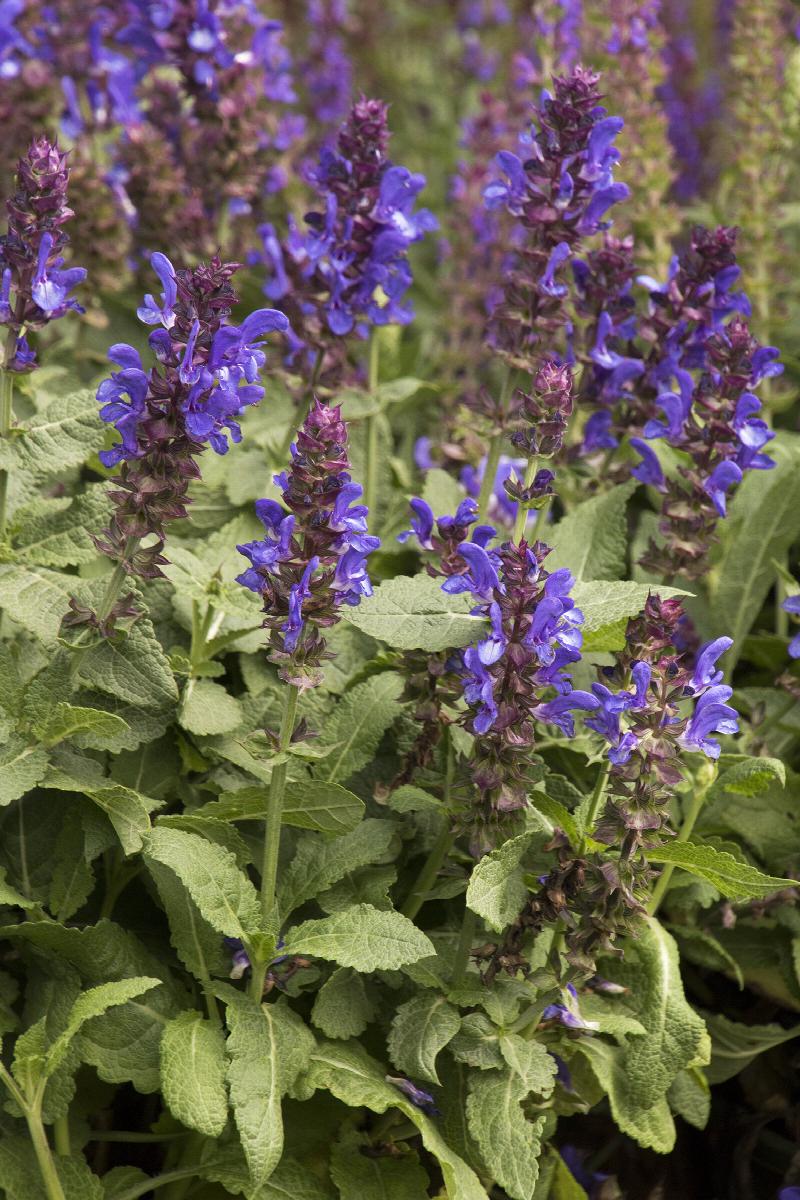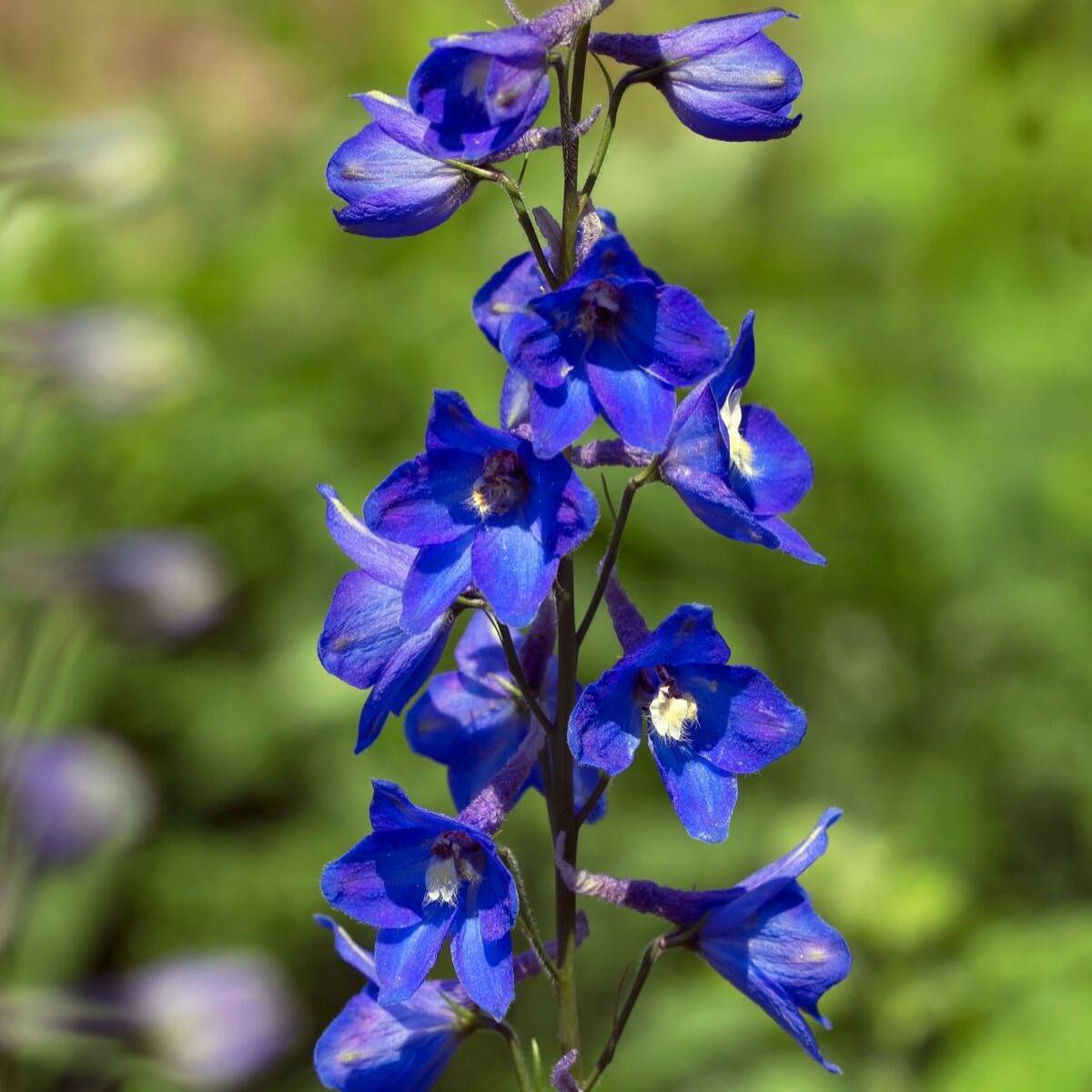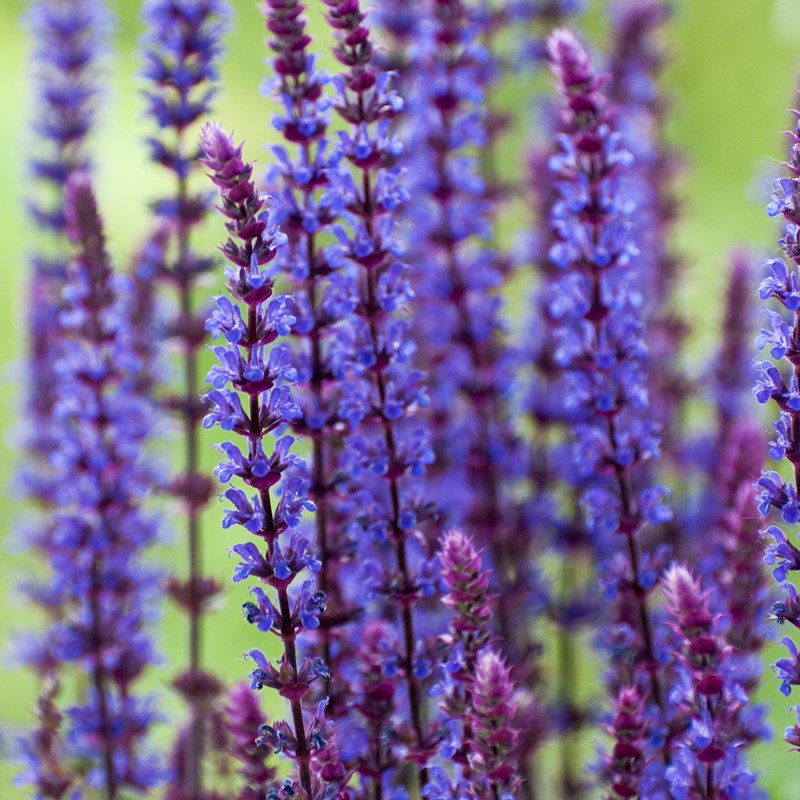Description
 Salvia nemorosa Blue Marvel
Salvia nemorosa Blue Marvel
Blue Marvel Sage
The Perennial Sages are invaluable perennials for their rich display in the border. Plants form a bushy clump of grey-green leaves, with upright bright blue flower spikes appearing in late spring through fall. Attractive to both butterflies and hummingbirds. This selection, part of the Marvel series, produces the largest flowers of all S. nemorosa. Remove faded flowers to encourage repeat blooming, or simply cut back hard after flowering is finished. Plants are reasonably drought tolerant, once established. Excellent for cutting. Clumps may be easily divided in early spring, every 3 to 4 years. USPP#27018: unlicensed propagation prohibited.
Sun Exposure Full Sun
Soil Type Normal or Sandy or Clay
Soil Moisture Average or Dry or Moist
Care Level Easy
Appearance and Characteristics
Flower Color Deep Blue
Blooming Time Early Summer Mid-Summer Late Summer Late Spring Early Fall
Foliage Color Grey Green
Plant Uses & Characteristics
Attracts Butterflies Attracts Hummingbirds Border Cut Flower Deer Resistant
Drought Tolerant Edging Rabbit Resistant Massed
Height 10-12 inches
Spread 10-12 inches




Reviews
There are no reviews yet.